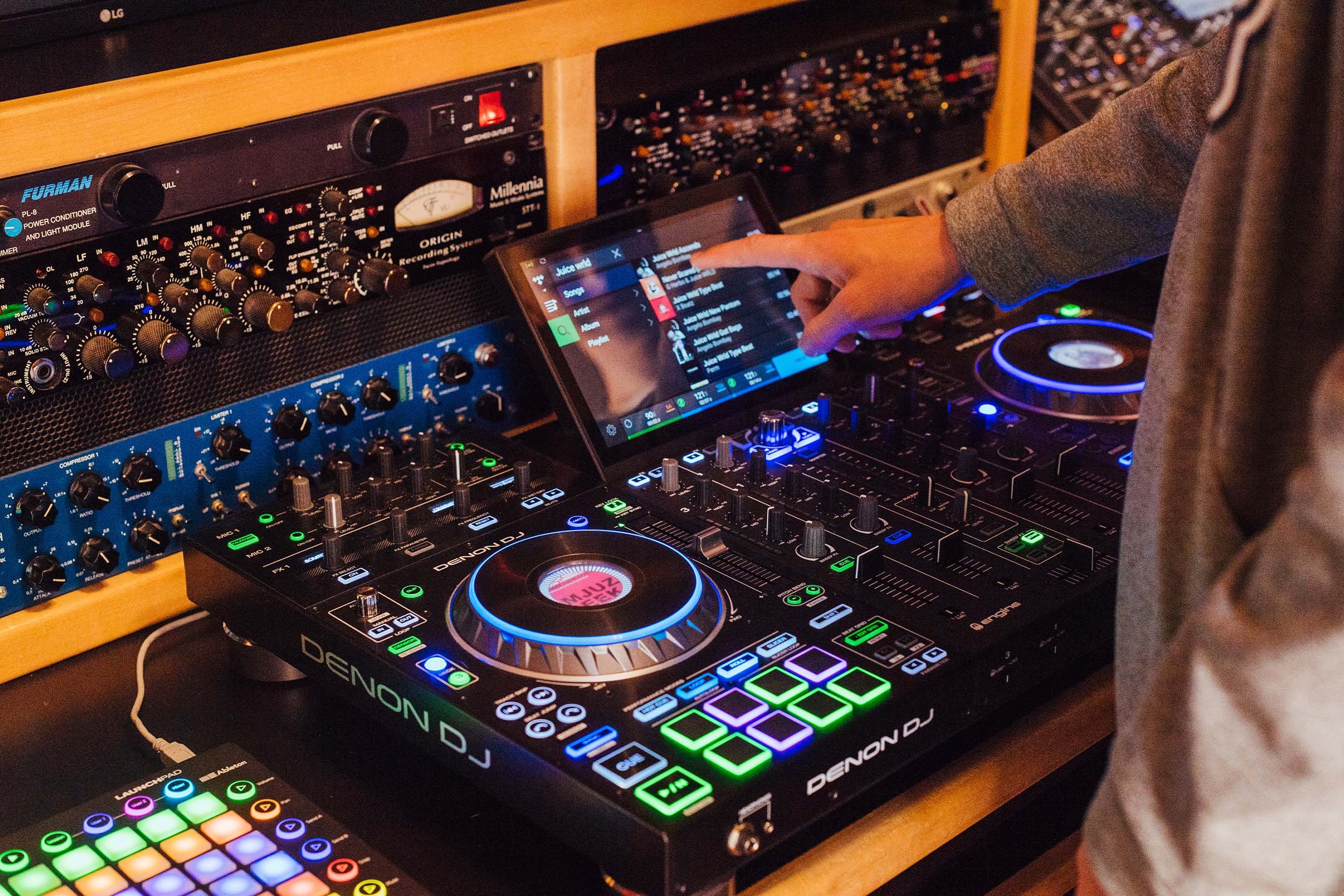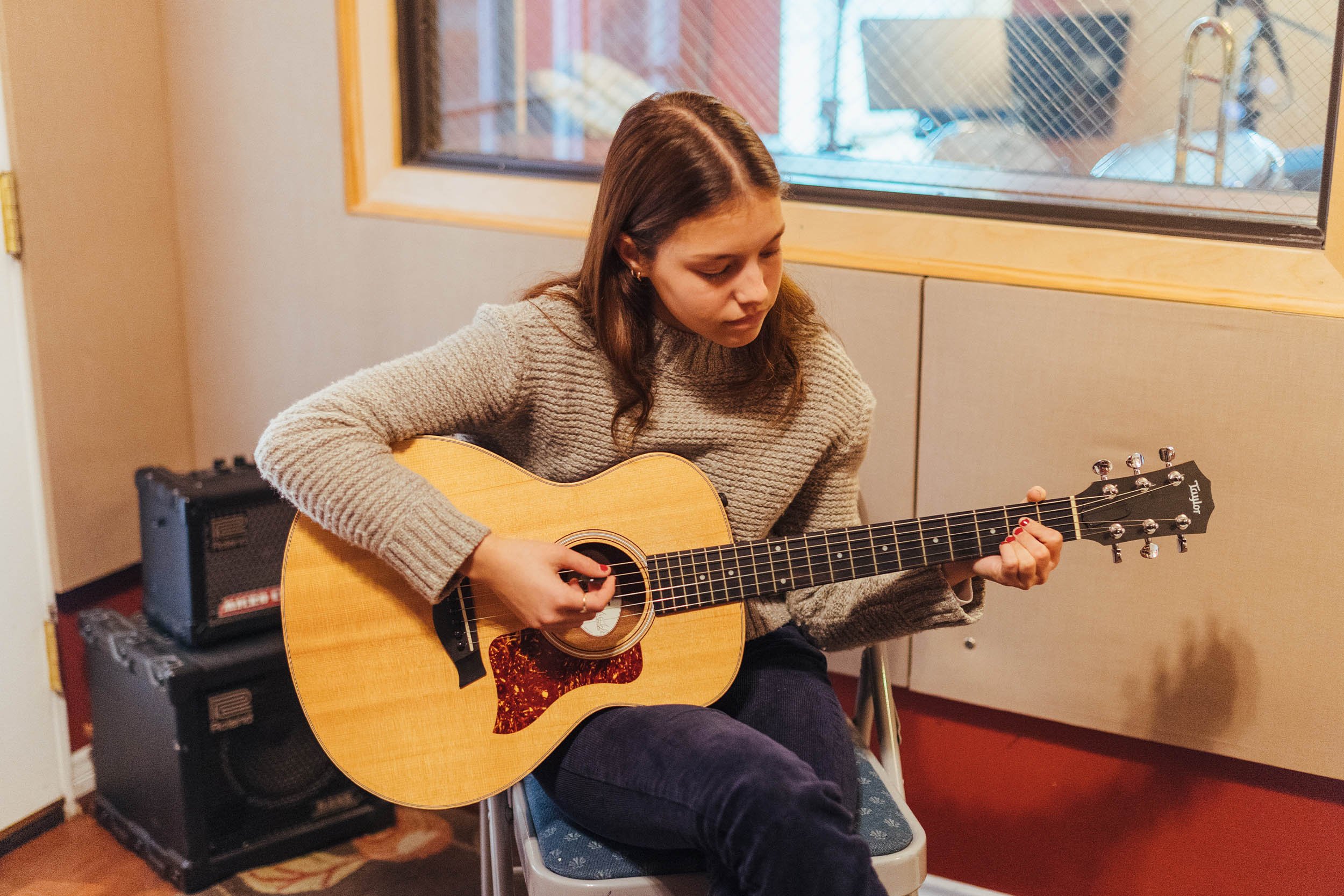For nearly 70 years, online learning has been part of the education experience for millions of students. Colleges, universities, and high schools have relied on various technologies to teach students a wide variety of subjects. Today, aspiring musicians turn to online music lessons to learn a new instrument or improve their skills.
If you don’t live near a music teacher, or if current circumstances make it challenging to take in-person music lessons, you may wonder, can music be taught online? The answer is yes! Read on and learn the benefits of online music lessons and how they are different than in-person classes.
Online Music Lessons Work No Matter Where You Live
BassLine Music provides music lessons to students of all ages and skill levels. Our students live worldwide and learn guitar, bass, piano, drums, and more. And they learn how to play these instruments wherever they live.
That’s one of the most significant advantages of online music lessons over in-person music lessons. You can log in to a session with expert music tutors located far away and get the same quality instruction as one-on-one music lessons.
If you travel, online music lessons are a significant advantage over in-person sessions. You can check-in for a class regardless of where life takes you.
Learning Technique Is Different When You’re Remote
One of the essential components of learning an instrument is knowing the proper technique. A teacher may place your fingers on the frets of a guitar or show you the correct way to hold a drumstick in person. Taking music lessons remotely makes that a little more complicated.
If you have an experienced teacher, they will show you the proper technique regardless of how you take a lesson. Today’s video technology allows teachers and students to interact in meaningful ways. It may take a little more time and some patience, but technique can be taught with online music lessons.
Sound Quality May Be Different When You’re Online
The quality of an internet connection can vary significantly from location to location. If you are taking a live lesson, your instrument’s tone and timbre may sound different from how it does in person. You can make adjustments to your computer or internet connection to improve the sound and video quality.
One option to improve your lesson’s sound quality is to use an asynchronous approach instead of live video. Your instructor will record a video lesson and send it to you, and you will record your part and send it back. This takes a little more time than live lessons, but the sound and video quality are typically much better.
This method also gives you a library of recorded lessons you can refer to over time. If there is a particular piece of music you are struggling with or a technique you are trying to master, you can practice it until you perfect it.
There’s More to Technology Than Video Chat
The most apparent tool used for online music lessons is video chat like FaceTime, Zoom, or Skype. But that isn’t the only technology that can be used to help you learn to play an instrument.
Online music teachers typically send links to YouTube videos for additional lessons. They also recommend phone apps and other computer software that will help you perfect your skills. Many of these tech tools will be used later in your music career when you chart or record your music.
Go Beyond YouTube Videos
Many aspiring musicians watch videos on YouTube and other video sharing sites to learn the basics. You can certainly learn a lot that way, but video sites are better for augmenting your learning.
Too often, people casually watch a video online when they have time. The truth is, to become a musician, you need to set aside time for lessons and practice. There is a degree of discipline that is required. It’s essential to learn with a trained instructor to improve your skill and ability.
Duets Might Be Tough
Teachers have used the duet approach of playing along with a student for years. This isn’t always possible with online music lessons. Even with the best internet connection, there is a slight time difference (called latency) between when you play a note and when your instructor hears it.
You’ve probably seen TikTok duets or late-night talk shows featuring the cast of a musical all singing together. It sure looks like they are singing or playing together at the same time. But they are recording their voices or instruments separately, and a video editor puts them together.
Don’t expect to perform a duet with your music instructor online.
You Can Still Hold a Recital
Music recitals are a rite of passage for every musician. They mark an important milestone in your music education and allow you to show others your accomplishments. While you might not perform in front of friends and family in an auditorium, you can have a recital experience online.
The key is to reframe your expectations of what a recital is. There are ways to maximize the experience for you and your audience. It may look and sound a little different, but performing for a virtual audience is still an accomplishment and a source of pride for you and your loved ones.
Let the Music Move You
Are online piano lessons worth it? Can online music lessons work? The answer to both questions is yes!
Online music lessons can be a rewarding and convenient experience for students of all skill levels. If you don’t live near a quality music instructor, a remote teacher is a great option. You may even save time and money by avoiding lengthy commutes.
We’ve described some of the limitations of online music lessons, but there are ways to overcome almost any hurdle. Learning to play a musical instrument is a life-changing experience. Even if you have to make some accommodations to make online learning work, it’s worth the effort.
If you’re ready to give online music lessons a try, contact us. Your first lesson is free, and we will help you decide if online lessons are the right fit for you.






